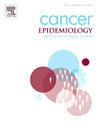The nationwide Dietary Intake after Diagnosis and Colorectal Cancer Outcomes (PLCRC-PROTECT) cohort: Study design, clinical characteristics and baseline health behaviors
IF 2.4
3区 医学
Q3 ONCOLOGY
引用次数: 0
Abstract
Purpose
The nationwide Dietary Intake After Diagnosis and Colorectal Cancer Outcomes (PROTECT) study is a prospective cohort study investigating how lifestyle-related factors including dietary intake and physical activity are associated with health-related quality of life (HRQoL), recurrence, and survival after a colorectal cancer (CRC) diagnosis.
Methods
Patients participating in the Prospective Dutch Colorectal Cancer (PLCRC) cohort with newly diagnosed stage I to IV colorectal cancer were recruited for PROTECT shortly after diagnosis, between 2015 and 2022. While patient-reported quality of life, physical activity, and sedentary behavior, as well as body composition data are available from PLCRC, patient-reported measurements in PROTECT included anthropometrics, dietary intake, dietary supplement use, and taste and smell alterations. Clinical data was obtained from the Netherlands Cancer Registry.
Results
Patients returned baseline questionnaires after a median of 43 days (IQR: 28–59) after diagnosis. At diagnosis, the 974 participants’ median age was 65 years (IQR: 58, 72), 59 % were male, 59 % had overweight/obesity, and 28 % stage I, 25 % stage II, 40 % stage III, and 6 % stage IV disease. Dietary supplements more frequently used were multivitamins (35 %), vitamin D (30 %), vitamin C (15 %), and magnesium (14 %). Around diagnosis, changes in taste ability were reported by 6 % of patients, while 2 % experienced changes in smell, and 16 % reported experiencing a dry mouthfeel. In total, 24 % adhered to ESPEN dietary guideline of ≥ 25 kCal/kg/day plus ≥ 1 gram protein/kg/day, while 45 % adhered to international physical activity guidelines.
Conclusion
PROTECT is a unique nationwide cohort of CRC patients with a wealth of lifestyle-related data obtained through patient-reported measurements, of which baseline assessments were presented. PROTECT participants will be followed until deceased or lost to follow-up to collect all clinical outcome data. PROTECT will inform clinical and public health guidelines on physical activity and dietary patterns for improving CRC outcomes and survivorship.
全国性诊断后饮食摄入与结直肠癌结局(PLCRC-PROTECT)队列:研究设计、临床特征和基线健康行为
目的:全国范围内的诊断后饮食摄入和结直肠癌结局(PROTECT)研究是一项前瞻性队列研究,旨在调查生活方式相关因素(包括饮食摄入和身体活动)与结直肠癌(CRC)诊断后健康相关生活质量(HRQoL)、复发和生存之间的关系。方法:2015年至2022年期间,参与前瞻性荷兰结直肠癌(PLCRC)队列的新诊断I至IV期结直肠癌的患者在诊断后不久被招募进行PROTECT。虽然PLCRC提供了患者报告的生活质量、身体活动、久坐行为以及身体成分数据,但PROTECT中患者报告的测量数据包括人体测量、饮食摄入、膳食补充剂使用以及味觉和嗅觉变化。临床数据来自荷兰癌症登记处。结果:患者在诊断后平均43天(IQR: 28-59)后返回基线问卷。在诊断时,974名参与者的中位年龄为65岁(IQR: 58, 72), 59 %为男性,59 %为超重/肥胖,28 %为I期,25 %为II期,40 %为III期,6 %为IV期疾病。更常用的膳食补充剂是多种维生素(35% %)、维生素D(30% %)、维生素C(15% %)和镁(14% %)。在诊断前后,6 %的患者报告味觉能力发生变化,2 %的患者报告嗅觉发生变化,16 %的患者报告口腔感觉干燥。总体而言,24% %遵守ESPEN膳食指南≥ 25 kCal/kg/day +≥ 1 g protein/kg/day,而45% %遵守国际身体活动指南。结论:PROTECT是一个独特的全国性CRC患者队列,通过患者报告的测量获得了丰富的生活方式相关数据,其中提供了基线评估。PROTECT参与者将被随访至死亡或失去随访以收集所有临床结果数据。PROTECT将为临床和公共卫生指南提供有关身体活动和饮食模式的信息,以改善结直肠癌的预后和生存率。
本文章由计算机程序翻译,如有差异,请以英文原文为准。
求助全文
约1分钟内获得全文
求助全文
来源期刊

Cancer Epidemiology
医学-肿瘤学
CiteScore
4.50
自引率
3.80%
发文量
200
审稿时长
39 days
期刊介绍:
Cancer Epidemiology is dedicated to increasing understanding about cancer causes, prevention and control. The scope of the journal embraces all aspects of cancer epidemiology including:
• Descriptive epidemiology
• Studies of risk factors for disease initiation, development and prognosis
• Screening and early detection
• Prevention and control
• Methodological issues
The journal publishes original research articles (full length and short reports), systematic reviews and meta-analyses, editorials, commentaries and letters to the editor commenting on previously published research.
 求助内容:
求助内容: 应助结果提醒方式:
应助结果提醒方式:


